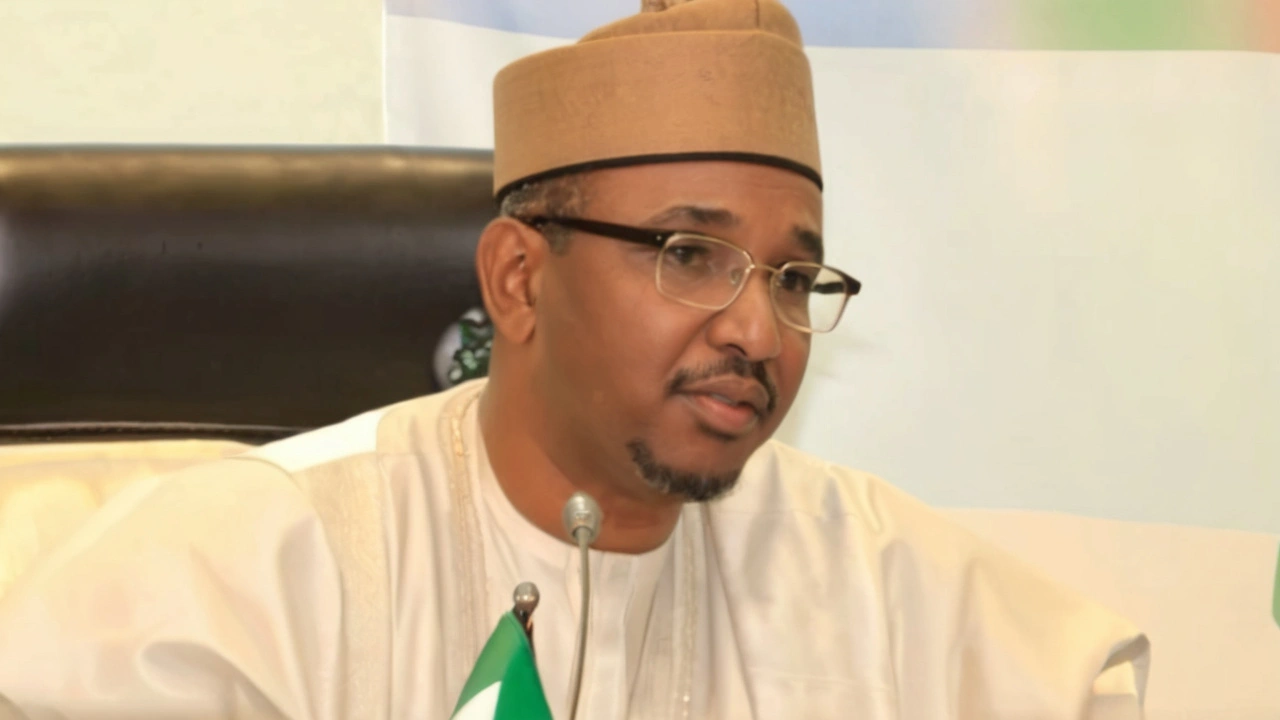Governor Proposes President Tinubu as PDP Campaign Director for 2027 Election
Governor Proposes President Tinubu as PDP Campaign Director for 2027 Election
In a move that has set the political arena abuzz, a governor has suggested that President Bola Tinubu could potentially be employed as the campaign director of the People's Democratic Party (PDP) for the 2027 elections. This statement has not only grabbed headlines but also triggered an extensive array of opinions, debates, and speculations across the political spectrum. The suggestion seems to be more than just a throwaway comment; it hints at deeper, evolving dynamics within Nigeria's political setup.
The governor's remark is noteworthy for several reasons. Firstly, it shines a light on the shifting sands of Nigerian politics. Presidential elections in Nigeria are known for their intricate interplay of alliances, defections, and sudden strategic decisions. Having President Tinubu, a figurehead of the All Progressives Congress (APC), take on a pivotal role in PDP’s campaign would be an unprecedented move. This bold statement raises questions about existing party loyalties and the overarching priorities of Nigeria’s political elites.
The Political Implications
One of the most immediate consequences of this proposal is the dialogue it incites about the elasticity of political affiliations in Nigeria. Such a move would obliterate the traditional boundaries that have long divided the APC and PDP. While the suggestion may seem audacious, it underscores a recurring theme in Nigerian politics: the surprising alignments and re-alignments among key political players. Historically, these kinds of political shifts are not entirely new in Nigeria. In fact, some of the country's most influential politicians have, at different times, switched alliances in pursuit of objectives that transcend party lines.
Strategic Calculations
The strategic calculations behind the governor's proposal are also worth considering. Appointing a prominent figure like Bola Tinubu could provide PDP with a significant boost, given Tinubu’s extensive network and influence. His involvement could attract a broad spectrum of voters who otherwise align with the APC. This sort of tactical maneuvering is characteristic of Nigerian politics, where electoral victories often hinge on the ability to forge unlikely partnerships and mobilize diverse voter bases. Additionally, for Tinubu, such a role would position him uniquely, perhaps signaling a shift or broadening of his political aspirations.
Mixed Reactions
Unsurprisingly, reactions to the governor’s statement have been mixed. Some political analysts regard it as a cleverly veiled strategic ploy designed to unsettle the opposition. Others see it as indicative of a larger trend towards a more fluid, less ideologically rigid political environment. On social media, ordinary Nigerians have weighed in with opinions ranging from outright disbelief to cautious optimism about the potential benefits of such a cross-party collaboration.
The Historical Context
To understand the full impact of this statement, one must consider the historical context of Nigerian politics. The lines between different political parties in Nigeria have always been somewhat blurred, with many politicians having a history of switching affiliations. For instance, the PDP was once the dominant political force in Nigeria, but over the past decade, the APC has gained significant ground. If Tinubu, a key architect of APC’s rise, were to switch affiliations or take on a role within PDP, it would signify a major political realignment.
Future Prospects
The governor's comment also raises questions about the future strategies of both PDP and APC as they approach the 2027 elections. For PDP, this could be an opportunity to rebrand and recalibrate their strategy by incorporating experienced political figures from outside their own ranks. On the other hand, APC would need to review and potentially revise their tactics to address the possibility of key figures migrating to the opposition. Such fluidity and strategic maneuvering are expected to define the political landscape in the years leading up to the elections.
In conclusion, while the governor’s suggestion of employing President Bola Tinubu as PDP's campaign director may still be in the realm of speculation, it serves as a reminder of the ever-evolving, dynamic nature of Nigerian politics. It highlights the potential for unexpected alliances and the constant state of flux that characterizes the political scene. As Nigeria moves closer to the 2027 elections, such statements are likely to reshape discussions, influence strategic decisions, and ultimately impact the political direction of the nation.
